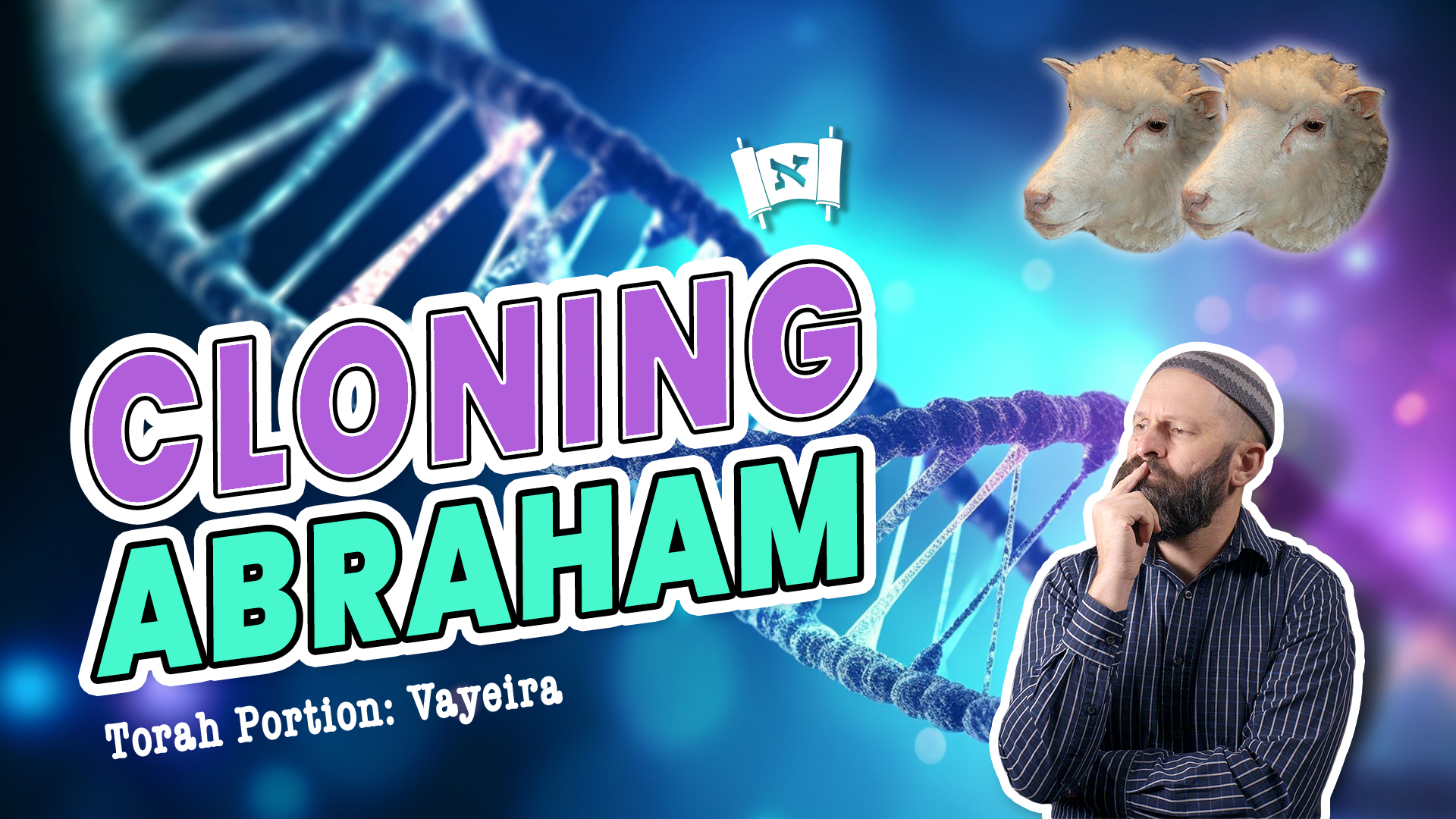Cloning From Abraham's DNA
Series:

Parashat Vayeira (Genesis 18:1-22:24)
One of the most well-known and riveting stories in the Torah is the binding of Isaac, found at the end of this week’s Torah portion. In Hebrew, it is referred to as the Akeidah, or the Binding. It is considered the final (and most difficult) of ten trials through which God tested Abraham. There are many lessons we can learn from this single event. We will attempt to bring out a few important aspects here.
At the very beginning of this passage, the Torah tells us, “After these things God tested Abraham” (Genesis 22:1). Why did God need to test Abraham? Doesn’t He know everything about every person on earth? Many times we tend to view the hardships of life as attacks from the adversary. However, just as Abraham, the father of our faith, was tested, we—the spiritual children of Abraham—should also expect testing. And we should not only expect testing, but we should embrace it. The fact is that tests are not for God, but for man. When we pass our test it demonstrates our faith in God to the world. And sometimes passing that test lets us know that we are capable of even more than we realize.
When Hashem told Abraham to bring his beloved son to Mount Moriah to offer him up as an olah, a burnt offering, Abraham’s response was to rise early in the morning and make all of the preparations for the mission he had been given. Abraham demonstrated a character trait known in Hebrew as zerizut, or alacrity. When he had a job to do, even one as difficult as this, he did not delay, but took to it immediately with fervor. Whereas anyone with lesser faith would have hesitated or even delayed obeying Hashem’s instructions due to their severity, Abraham was eager to carry them out as quickly as possible.
One thing that is remarkable about the entire event was Isaac’s complete agreement with his father. According to tradition based on the timeline of biblical events, Isaac was around thirty-seven years old at the time of the Akeidah. Therefore, he had an acute awareness of what was about to happen:
And Abraham took the wood of the burnt offering and laid it on Isaac his son. And he took in his hand the fire and the knife. So they went both of them together. And Isaac said to his father Abraham, “My father!” And he said, “Here I am, my son.” He said, “Behold, the fire and the wood, but where is the lamb for a burnt offering?” Abraham said, “God will provide for himself the lamb for a burnt offering, my son.” So they went both of them together. (Genesis 22:6–8)
The Hebrew expression, “Vayelchu sheneihem yachdav” appears twice in this section. It is usually translated to mean that they simply journeyed together. However, the Hebrew connotes more than simply journeying together. It implies joining together in purpose. They were yachdav, “as one.” The first time this phrase appears is after the wood is placed upon Isaac and they begin their journey. The second time it appears is when Isaac has the sinking realization that the missing lamb was intentional and that he would be the one placed upon the altar. But yet the two of them continued on “as one.”
Isaac, bearing the greatness of his father’s spiritual genes, was one with Abraham in purpose. This unity was so great that Isaac wanted to ensure that his sacrifice was carried out properly. The midrash relates that Isaac was so concerned that he would instinctively react to the knife approaching that he asked to be bound so that he would not flinch and invalidate himself as a sacrifice. This was the depth of his oneness with his father.
There is an expression in Hebrew that says, “Ma’aseh avot siman lebanim.” It means, “The actions of the fathers are portents for the children.” In this test Abraham becomes not only a testimony of faithfulness and complete trust for all future generations, but also a pattern by which his children will be recognized. His spiritual DNA, so to speak, is passed down from generation to generation. This is why Paul says that Abraham is "the father of all who believe" (Romans 4:11). When our actions line up with Abraham, we become somewhat of a replica, a clone, so to speak, of the father of our faith. We are not only demonstrating our spiritual lineage, but we are establishing a pattern of faithfulness for our children and grandchildren as well. May we all live in a manner that reflects the unwavering faith of our father Abraham to our children and all subsequent generations.








